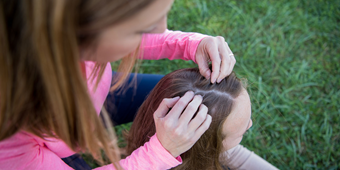5 Tactics to Talk Your Teen Out of Tanning

Find Your Perfect Match
Answer a few questions and we'll provide you with a list of primary care providers that best fit your needs.
You may be convinced that tanning is harmful. That it causes permanent skin damage and increases the risk for skin cancer.
But when all her friends aspire to have a golden glow, how do you convince your teen about the dangers of tanning? Especially when peers and popular culture promote tanned skin as an attractive, healthy look?
Personal stories come through louder and clearer than most anything else you can tell your teen.
When it’s time to have the tanning talk, here are five suggestions on how to get your message across. As the parent, you know what makes your teen tick, so try these and other strategies accordingly:
1. Facts, Without the Lecture
Approach the topic of tanning naturally in casual conversation. Not as a lecture. For instance, mention that you recently read about research that shows that women who used tanning beds in their teens and 20s![]() are at as much as six times greater risk of developing deadly melanoma skin cancer.
are at as much as six times greater risk of developing deadly melanoma skin cancer.
Another fact worth mentioning: Melanoma rates have been rising the past 30 years. The American Cancer Society reports that about 74,000 Americans were newly diagnosed last year and nearly 10,000 died from melanoma. Women, who are more likely than men to tan indoors, are at greater risk. (Make sure to mention that exposure to the sun — without protection — also increases skin cancer risk.)
2. Not Everybody’s Tanning
In your conversations, don’t be afraid to name drop. Celebrities like Taylor Swift, Adele and Emma Stone prefer and sometimes even speak out for the fair look.
If appearance is a motivating factor for your teen, then the appearance or thought of skin damage, prematurely aging skin, wrinkling and age spots could be enough to change his or her attitude about tanning beds.
3. Avoid the Sun and Hypocrisy

Even though parents’ influence typically diminishes during their children’s teen years, your kids are still watching you. So be a good model. Put on sunscreen with an SPF (sun protection factor) of 30+. Wear a wide-brimmed hat. Limit sun exposure. Stay out of tanning parlors.
And if your own skin is damaged from tanning in your youth, you can use that as a teaching tool. Personal stories come through louder and clearer than most anything else you can tell your teen. Share your experience and pass the sunscreen.
4. Alternatives to Tanning
But if your teen is still drawn to the bronzed look and isn’t giving in, you could recommend tanning alternatives that don’t involve UV exposure. Self-tanners and spray tans provide the bronzed look without skin damage and the threat of cancer.
Just be aware that these treatments don’t protect skin against UV rays from the sun. So, they should be accompanied by a broad-spectrum sunscreen with an SPF of 30+, preferably that’s water-resistant for extended or intense sun exposures.
5. Repeat as Needed
If at first your message doesn’t get through — and it likely won’t — have faith. Try again. Try other approaches. Never nag.
Find Your Perfect Match
Answer a few questions and we'll provide you with a list of primary care providers that best fit your needs.
Source: Skin Cancer Foundation; Centers for Disease Control and Prevention; The JAMA Network




